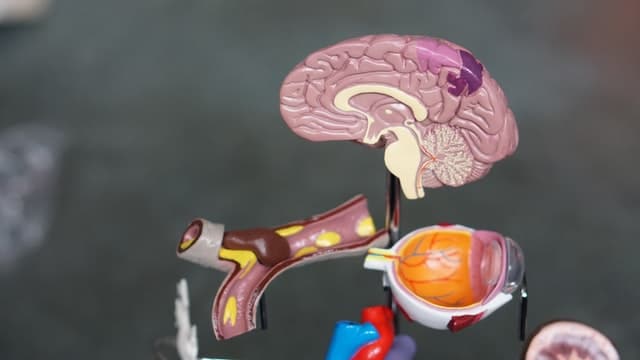After a provocative media request in 2021, writer and dementia care expert Christy Turner asked: How does the media-driven narrative about President Joe Biden and cognitive decline affect folks who are concerned about their own cognitive health?
“Hi Christy, it’s Tori at [media outlet]/interview request.”* The email continued:
Reaching out to see whether you can join our morning show. There’s been a lot of attention and concern about the mental and physical health of President Biden. We are not looking to do a hit piece. Our goal is to have a respectful discussion with an expert in elder care. We’re not asking you to diagnose him as that’s inappropriate and not realistic. We’d like to shed light drawing from your years of firsthand experience the process for evaluating the acuity of an elderly family member. A lot of questions are being raised about the President and we’d like to have a responsible, thoughtful discussion. If you prefer to talk this through, please feel free to give me a call.
Warm regards,
Tori, Editorial Producer, [media outlet]
I couldn’t even think of what to say back. The fact that I was being asked to do an interview about President Biden’s cognition without knowing anything about it says a lot about how the media is trying to control a narrative about cognitive health — a narrative that affects not just an individual, but public health at large. Long story short, I didn’t appear on the show. Here’s why.
When media gets in the way of public health
If we decide it’s okay to use dementia as a slur and cognitive impairment as a power play or a put-down, we’re creating more barriers to people seeking medical attention and getting the help they need. The historical record is littered with one tragic example after another of what happens when a group of people is othered and dehumanized.
We can look to the past for examples of how the media has done this before. Remember when politicians and the media framed chemical dependency as a moral failure rather than a medical condition? Ask nearly half of U.S. families how well that approach has worked. Making fun of, name-calling, and shaming people living with a chemical dependency problem hasn’t helped. In fact, it has made it harder to seek help, harder to talk about, harder to figure out where to go or what to do in order to receive help.
We’re often reminded that admitting you have a problem is the first step in seeking help, be it for chemical dependency or any other problem. This is literally impossible for a significant portion of people living with cognitive impairment. It’s not because they’re “in denial,” as they’re so often accused. Rather, it’s because their brain is telling them everything is a-okay. This condition is called anosognosia, and it is the brain’s inability to detect impairment.
Assuming there’s a trusted friend or family member who’s able to help navigate that hurdle, there’s still the next step, which we don’t really talk about: believing you deserve help; believing you’re worthy of help just because you’re human, simply because you exist on this planet.
A large chunk of the population gets its information from a media ecosystem that keeps hammering home the message that only certain people are deserving of help. Stigmatizing, shaming, and designating fellow humans as unworthy of assistance are significant barriers to deserved service. But add on top of that the role media plays in disseminating disinformation, and it starts to feel almost insurmountable.
There’s still far too much shame and stigma attached to cognitive impairment, which can be caused by a number of factors: traumatic brain injury, Alzheimer’s disease, brain tumor, stroke, frontotemporal degeneration, Lewy body syndrome, Parkinson’s disease, multiple sclerosis, grief, depression, sleep deprivation, and more. These are all serious conditions. The majority require timely medical intervention. Several of these conditions ultimately cause dementia.
The harm in politicizing cognitive decline
Whether they called it “dementia” or “cognitive decline” or “senile,” in late 2020 and 2021, some media outlets have arrived at the conclusion that President Biden’s problem is “obvious,” when in fact, experts in the field of diagnosing cognitive decline in its various forms — Alzheimer’s and dementia included — know that is just not how it works. Off-the-cuff observations of someone speaking are simply not how dementia or other serious cognitive impairment is diagnosed, and beyond that, those familiar with dementia will tell you that such a claim in this case just doesn’t add up. Yet, despite repeated fact-checking and dismissal, the “Joe Biden has dementia” narrative persists.
So, what was [media outlet] hoping to accomplish with this segment?
As an exercise, let’s assume that, just maybe, these media outlets believe that highlighting supposed cognitive issues with our leaders is helping to educate the general public about dementia. Here I would argue, if the point of doing a segment is about recognizing signs of cognitive impairment — a valuable public service — the Alzheimer’s Association has a handy “Know The 10 Signs” cheat sheet that’s been around for at least 20 years. Why waste time speculating about a public figure’s cognitive health when you could just share that in a broadcast?
I never wrote back to Tori. But had I actually been on the show, here’s what I would have wanted to say:
You aren’t helping anything by turning this into a political issue. If you roll video of either President Biden or former President Trump from 20 years ago, when both were in their 50s, you’ll notice changes in both. Both are verbal gaffe machines. The big difference is one admits it (Biden), and one doesn’t (Trump). That, too, is part of their respective well-documented personalities — not “evidence” of undiagnosed cognitive impairment.
I said the same when folks were going after then-president Trump on this basis. As I pointed out in a piece I wrote before the election about the problem with “person-man-woman-camera-tv” turning into a national punchline, none of this debate of “Does he or doesn’t he have Alzheimer’s” is helpful for people living with a diagnosis of some type of cognitive impairment, and especially not for folks with a suspected but as-yet-undiagnosed cognitive impairment.
As, as Tori put it, an expert in elder care, here are the risks as I see them: Making cognitive decline into an insult or a punchline, for political purposes or any other, risks making folks who are concerned about their own cognitive health less likely to seek medical attention and diagnosis. And in the case of people already living with cognitive impairment, this kind of media story risks making them less likely to accept assistance that could help them and their loved ones.
Despite their stated claim of wanting to have “a respectful discussion,” my guess is that the media organization that invited me to their show had no interest in hearing any of this, so perhaps it is for the best that I declined the invitation. But that doesn’t solve the problem for the millions of people worried about their cognitive health who look to the media for factual information.
*Name changed to protect privacy.
Christy Turner has worked with more than 1,500 people living with dementia and their families, including multiple people in her own family. She is a speaker and consultant, host of The Alzheimer’s Podcast, founder of DementiaSherpa.com, and creator of the online programs Memory Care at Home and The Dementia Sherpa’s Guide to Moving into Memory Care.
UPDATE: 28 June, 2024, 1:41 P.M. ET. This op-ed from Apr 30, 2021 was updated to meet our formatting and readability standards.





Thank you, Christy Turner, for sharing your thoughts. I couldn’t agree more. There is enough stigma around Alzheimer’s disease and dementia, without “media” adding fuel to the fire. And as Deborah Kan pointed out in her recent interview on the Dementia Matters podcast, the sheer amount of information that exists out there is intimidating to families of people with Alzheimer’s and dementia, even without deliberate attempts to hype or politicize.
Well it’s really a matter of deciding when to take the “car keys” so to speak. Do we wait until he gets into an accident and kills someone? This is the guy with the Nuclear Codes, remember. If this were my father and it was found out that was assigning him really complex problems to solve, daily responsiblities lasting all day and into the night, i think social services might be called to make sure i’m not abusing or exploiting and elderly man who is obvious struggling in public.
If it were Trump, the whole article would likely be very different. To the extent dimensia is a metabolic disorder, often called Type III diabetes, it is a lifestyle choice (ironically, perhaps from following the US Dietary Guidelines)
Maybe people are just seeing his inability to lead the free world with out notes or reading a teleprompter .
This is dishonest for a doctor to say. Alzheimer’s Disease is a form of dementia, but not all dementia is AD.
A more reliable answer would be: “clearly there are signs of cognitive impairment (ie. dementia), but we’re not his doctor, so we don’t know what it’s due to”. (FYI – I agree the same could be said about Trump’s behaviour).
It would be great for an expert to install some accurate information back into the debate by explaining what “dementia” actually means medically. Then people could have faith in expert opinion, rather than see it as yet another denial of what is obvious and concerning to everyone.
And it’s not about being “mean” to older people (plenty of people Biden’s age and older hold down full-time professions); it’s a question of public trust in competency of office.